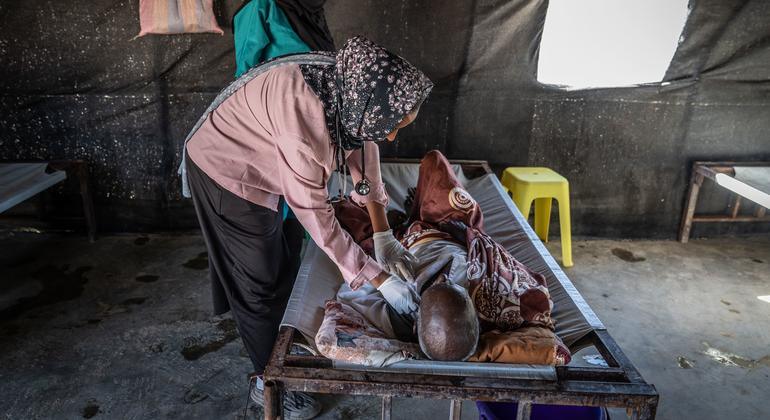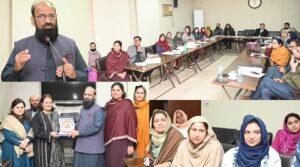So far this year, cholera has killed more than 4,300 people in 31 countries. These figures are underestimated and there is a particular concern for those impacted by war in Sudan, Chad, the Democratic Republic of Congo, South Sudan and Yemen.
In Sudan, the disease has already charged more than 1,000 lives since January 1. It has reached all the states of the country, a year after the outbreak began, according to WHO.
Cases rise in Darfur devastated by war
With the sub -Saharan rain season now underway, the UN agency is concerned about an increase in water transmitted by water, linked to the large number of people fleeing in the way.
“While cases have stagnated or diminished in some areas, including Jardum, they are rising in the Darfur and Chad neighboring region in Tawila, North Darfur,” said Who’s Kathryn Alberti.
Refugees have quadrupled the population of about 200,000 to more than 800,000, causing immense tension in water and sanitation systems, he added.
“People have only three liters of water daily and this is for cooking, washing, cleaning and drinking.”
To respond to the problem, WHO and partners have established work groups, deployed rapid response equipment for surveillance and stored essential cholera supplies in Darfur, although the “large parts” of Darfur and Kordofan remain unattainable.
Humanitarian needs continue to grow in Afghanistan
Four years after the de facto taliban regime took over Afghanistan, more than half of the population needs vital help, according to the UN Humanitarian Office (Ocha).
Women and girls are particularly vulnerable due to the increasingly restrictive policies that the Taliban authorities have imposed, excluding them from education, workforce and public life.
“Humanitarian aid is a lifeguard for women and girls who otherwise cannot access essential services and assistance,” said UN spokesman Stéphane Durric, in Friday’s daily information session in New York.
1.7 million returns
Ocha also warned that the return of 1.7 million Afghan citizens of Iran and Pakistan this year has further increased humanitarian needs, since most have limited community ties and is struggling to find refuge and ways of making a living.
To support the response of the host communities with little resources, the UN Central Emergency Response Fund (CERF) recently launched $ 10 million, and the additional funds is in the process of the Humanitarian Fund of Afghanistan.
But more resources are needed urgently. The humanitarian and humanitarian response plan in Afghanistan is only 25 percent funded, with $ 624 million received from the $ 2.4 billion that are needed, and another influx of refugees is expected before the deadline of September 1 of Pakistan for the test of the registration card holders Afghan to leave.
Insecurity also increases in the east of Dr Congo
In the eastern parts devastated by war, the Democratic Republic of the Congo, Ocha says that insecurity is increasing in the territory of Djigu, in the province of Ituri.
The clashes between multiple armed groups and the Congolese armed forces in several areas have resulted in almost 50 civil deaths and more than 30 injuries in the last month there.
In the same period, violence and insecurity have led to the displacement of more than 80,000 people in Djugu.
In the attacks, the houses were looted or burned, and those who fled are now taking refuge in schools, churches and other public buildings.
Directed murders
There have been three specific attacks on sites organized internally displaced people.
These clashes have severely limited humanitarian access, depriving around 250,000 essential services. In the Nizi Health District in the territory of Icuri, nine of the 12 health centers are now out of service.
The UN and its humanitarian partners are ready to respond, but they need access without obstacles and safe to do so.
“All parties must take urgent measures to protect civilians and facilitate humanitarian access. Civilians must be protected at all times, in line with international law,” said Mr. Dujarric on Friday.




